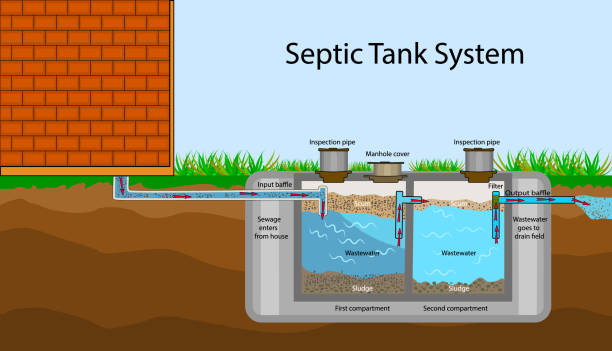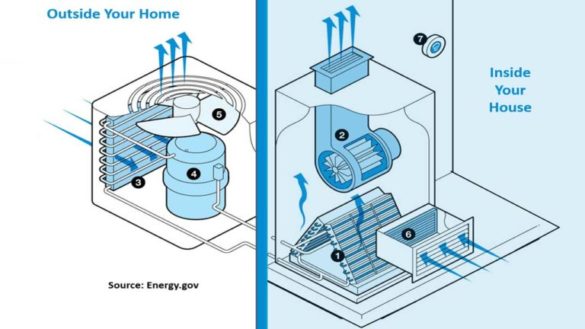Design of Your House's Plumbing System: What It Matters
Design of Your House's Plumbing System: What It Matters
Blog Article
Were you on the lookout for advice about The Inner Workings of Your Home's Plumbing?

Recognizing how your home's plumbing system works is necessary for every single homeowner. From delivering clean water for drinking, food preparation, and showering to securely getting rid of wastewater, a properly maintained pipes system is crucial for your family members's health and comfort. In this thorough overview, we'll discover the intricate network that composes your home's pipes and deal pointers on maintenance, upgrades, and handling common issues.
Introduction
Your home's pipes system is greater than simply a network of pipes; it's a complex system that guarantees you have accessibility to tidy water and reliable wastewater removal. Recognizing its parts and exactly how they collaborate can help you prevent pricey repair services and guarantee everything runs smoothly.
Standard Parts of a Plumbing System
Pipelines and Tubes
At the heart of your plumbing system are the pipes and tubes that bring water throughout your home. These can be constructed from different materials such as copper, PVC, or PEX, each with its benefits in regards to sturdiness and cost-effectiveness.
Fixtures: Sinks, Toilets, Showers, and so on.
Fixtures like sinks, toilets, showers, and bath tubs are where water is utilized in your home. Recognizing exactly how these fixtures attach to the plumbing system helps in detecting troubles and preparing upgrades.
Valves and Shut-off Factors
Valves regulate the circulation of water in your plumbing system. Shut-off shutoffs are essential during emergencies or when you require to make repair work, permitting you to isolate parts of the system without disrupting water circulation to the entire residence.
Supply Of Water System
Key Water Line
The primary water line attaches your home to the community water or a personal well. It's where water enters your home and is distributed to different components.
Water Meter and Pressure Regulatory Authority
The water meter steps your water usage, while a stress regulator ensures that water moves at a risk-free pressure throughout your home's plumbing system, protecting against damage to pipes and components.
Cold Water vs. Hot Water Lines
Understanding the distinction in between cold water lines, which provide water directly from the major, and hot water lines, which carry warmed water from the water heater, aids in fixing and planning for upgrades.
Water drainage System
Drain Pipes and Traps
Drain pipes carry wastewater away from sinks, showers, and commodes to the drain or septic tank. Catches avoid sewage system gases from entering your home and likewise catch debris that might trigger obstructions.
Ventilation Pipelines
Ventilation pipelines enable air right into the drain system, protecting against suction that might reduce drainage and create traps to vacant. Appropriate ventilation is essential for preserving the integrity of your pipes system.
Significance of Correct Drainage
Making certain proper water drainage prevents back-ups and water damages. Frequently cleaning up drains pipes and preserving catches can prevent expensive fixings and extend the life of your plumbing system.
Water Heating System
Kinds Of Hot Water Heater
Water heaters can be tankless or conventional tank-style. Tankless heating systems heat water on demand, while containers store heated water for instant usage.
Upgrading Your Plumbing System
Factors for Updating
Updating to water-efficient fixtures or replacing old pipes can improve water quality, decrease water expenses, and boost the worth of your home.
Modern Pipes Technologies and Their Benefits
Discover modern technologies like clever leakage detectors, water-saving commodes, and energy-efficient water heaters that can save money and decrease ecological effect.
Expense Factors To Consider and ROI
Determine the in advance expenses versus long-lasting financial savings when considering plumbing upgrades. Numerous upgrades pay for themselves via lowered energy costs and less repair services.
Exactly How Water Heaters Link to the Plumbing System
Understanding just how hot water heater attach to both the cold water supply and warm water circulation lines aids in detecting issues like not enough warm water or leakages.
Maintenance Tips for Water Heaters
Frequently flushing your hot water heater to eliminate sediment, checking the temperature level settings, and examining for leaks can expand its life-span and enhance energy efficiency.
Typical Plumbing Concerns
Leakages and Their Reasons
Leaks can occur due to aging pipes, loosened installations, or high water stress. Dealing with leaks without delay avoids water damage and mold and mildew development.
Clogs and Obstructions
Clogs in drains pipes and commodes are often brought on by flushing non-flushable things or a buildup of oil and hair. Utilizing drain displays and bearing in mind what goes down your drains pipes can stop obstructions.
Indications of Plumbing Troubles to Look For
Low water stress, slow drains pipes, foul odors, or uncommonly high water bills are indicators of prospective pipes issues that must be resolved immediately.
Pipes Maintenance Tips
Normal Assessments and Checks
Schedule yearly plumbing assessments to catch concerns early. Search for indicators of leaks, deterioration, or mineral accumulation in taps and showerheads.
DIY Upkeep Tasks
Easy jobs like cleaning tap aerators, checking for bathroom leaks utilizing dye tablet computers, or protecting subjected pipelines in chilly environments can avoid significant plumbing problems.
When to Call a Professional Plumbing Technician
Know when a plumbing problem calls for expert expertise. Attempting intricate repair work without appropriate knowledge can result in even more damage and higher repair service costs.
Tips for Lowering Water Usage
Easy practices like fixing leakages promptly, taking shorter showers, and running complete lots of laundry and meals can preserve water and lower your utility expenses.
Eco-Friendly Pipes Options
Take into consideration lasting plumbing materials like bamboo for floor covering, which is durable and eco-friendly, or recycled glass for countertops.
Emergency Preparedness
Steps to Take Throughout a Pipes Emergency situation
Know where your shut-off valves are located and exactly how to switch off the water system in case of a ruptured pipeline or significant leakage.
Significance of Having Emergency Get In Touches With Convenient
Maintain contact info for regional plumbing technicians or emergency situation solutions conveniently available for fast feedback during a pipes situation.
Environmental Effect and Conservation
Water-Saving Fixtures and Appliances
Installing low-flow faucets, showerheads, and bathrooms can substantially minimize water use without giving up efficiency.
Do It Yourself Emergency Situation Fixes (When Relevant).
Short-lived solutions like using duct tape to patch a leaking pipe or placing a bucket under a dripping faucet can minimize damage until a professional plumber arrives.
Conclusion.
Recognizing the composition of your home's plumbing system equips you to maintain it efficiently, saving time and money on repairs. By adhering to routine maintenance routines and remaining educated concerning contemporary pipes modern technologies, you can guarantee your plumbing system runs successfully for several years to find.
HOW YOUR PLUMBING SYSTEM WORKS
Which Pipes Do What?
Blue lines = fresh water supply entering the building Red lines = hot water supply entering the building Grey lines = pipes carrying waste away from the building and venting pipes carrying gases away from the building (through the roof) YOUR MAIN PLUMBING SYSTEMS
There are two main plumbing systems that support your home s basic plumbing needs one that brings clean water into your home, and one that sends dirty water away from your home. Connected to the toilet, bath, shower, and other faucets in your home, these two systems keep your water flowing in the right directions.
ACCESSING FRESH WATER
Fresh and clean water is brought into your home through the main water supply line . Filtered through one pipe, this water is pressured to flow into the various fixtures in your home at any given time.
This water can be sourced from a well located on your property, a pond or river (mostly cottages), or, as in most cases, from the city s municipal water treatment centre. However, it is important to note that water that is untreated, such as the water siphoned from ponds or rivers, may not be safe to drink. Personal water supplies always need to be treated for hardness and contaminants before consumed.
MUNICIPAL WATER SUPPLIES
Improve taste and odour Remove sediment Eliminate hardness Reduce chlorine COLD WATER SUPPLY VS. HOT WATER SUPPLY
Cold water flows into your home or building through the service line, which then distributes hot or cold water to your fixtures. This line is most commonly run through a central column that runs floor to floor. Hot water runs in short and straight pipes as the longer the pipeline, the more heat that will be lost in the transfer. Having shorter pipes also allows residents to access hot water more quickly.
WASTE WATER SYSTEM
Your wastewater system is divided into two parts pipes that send wastewater away from your home and venting pipes that send sewer gas away from your home. Sewage water travels through pipes that flush the water and waste towards local sewers that are operated and managed by your city or town. Most sewer systems rely on gravity to move the wastewater to where it needs to go.
The further away from your toilet or sink, the larger wastewater pipes become. This allows for waste to be disposed of from various parts of your home or business at once without pipe blockages. The angle and flow of these pipes are also essential for keeping your waste pipes clear of build up.
https://harrisplumbing.ca/how-your-home-plumbing-system-works/

I was made aware of that write-up about Understanding Your Home's Plumbing Anatomy from a pal on our other site. Feel free to take the time to distribute this write-up if you enjoyed reading it. Many thanks for taking the time to read it.
Schedule Service Report this page